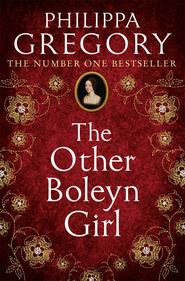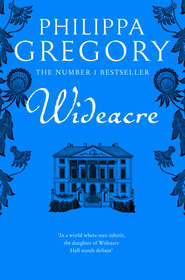По всем вопросам обращайтесь на: info@litportal.ru
(©) 2003-2025.
✖
The Virgin’s Lover
Автор
Год написания книги
2019
Настройки чтения
Размер шрифта
Высота строк
Поля
Robert raised his head from the contemplation of his empty bowl and said: ‘What?’
‘We’re ploughing up the meadow,’ she said. ‘For what little hay it gives us, it’s no use. And we are short-handed. You can help out in the field tomorrow.’
He looked at her as if she were speaking Greek. ‘You want me to work in the fields?’
‘I am sure that Stepmother means that you should supervise the men,’ Amy interposed. ‘Don’t you?’
‘How can he supervise ploughing? I doubt he knows how it is done. I thought he could drive the cart, he’s good with horses, at least.’
Amy turned to her husband. ‘That wouldn’t be so bad.’
Robert could not speak, he was so appalled. ‘You want me to labour in the field? Like some peasant?’
‘What else can you do for your keep?’ Lady Robsart asked. ‘You are a lily of the field, man. You neither sow nor reap.’
The colour was draining from his face till he was as pale as the lily she called him. ‘I cannot work in the field like a common man,’ he said quietly.
‘Why should I keep you like a lord?’ she demanded crudely. ‘Your title, your fortune, and your luck have all gone.’
He stammered slightly. ‘Because even if I never rise again, I cannot sink to the dunghill, I cannot demean myself.’
‘You are as low as a man can get,’ she declared. ‘King Philip will never come home, the queen, God save her, has turned against you. Your name is blackened, your credit has gone, and all you have in your favour is Amy’s love and my patronage.’
‘Your patronage!’ he exclaimed.
‘I keep you. For nothing. And it has come to my mind that you might as well work your passage here. Everyone else works. Amy has her hens and her sewing, and her work in the house. I run the place, my sons care for the livestock and the crops.’
‘They order the shepherd and the ploughman,’ he burst out.
‘Because they know what orders to give. You know nothing so you will have to take orders.’
Slowly, he rose from the table. ‘Lady Robsart,’ he said quietly, ‘I warn you not to push me too far. I am defeated now but you should not seek to humiliate me further.’
‘Oh, why not?’ She was enjoying herself. ‘I hardly fear the mightiness of your revenge.’
‘Because it is petty of you,’ he said with dignity. ‘I am very low, as you say. I am a defeated man and I am grieving for the loss of my brother, of three beloved brothers lost in the last two years by my fault. Think of what that means to a man! You could show a little charity even if you have no kindness. When I was Lord Robert, neither you nor Amy’s father wanted for anything.’
She did not answer, and he rose to his feet. ‘Come, Amy.’
Amy did not obey. ‘I will come in a minute.’
Lady Robsart turned her head to hide her smile.
‘Come,’ Robert said irritably, and held out his hand.
‘I have to clear the plates, and sweep the board.’ Amy excused herself.
He would not ask her again. He turned on his heel at once and went to the door.
‘You will be in the stable yard at dawn, ready for work,’ Lady Robsart called after him.
He closed the door on her triumphant voice.
Amy waited till they heard him walk away and then she rounded on her stepmother. ‘How could you?’
‘Why should I not?’
‘Because you will drive him away from here.’
‘I don’t want him here.’
‘Well, I do! If you drive him away then I will go too.’
‘Ah, Amy,’ her stepmother counselled. ‘See sense. He is a defeated man, he is good for nothing. Let him go. He will go back to Philip of Spain or on some other adventure and in some battle or another he will be killed and you will be free. Your marriage was a mistake from the start to finish, and now you can let it finish.’
‘Never!’ Amy spat at her. ‘You are mad to even dream it. If he goes out with the plough then I will go out with the plough. If you make him your enemy then you make me your enemy too. I love him, I am his, and he is mine, and nothing will come between us.’
Lady Robsart was taken aback. ‘Amy, this is not like you.’
‘No. This is me. I cannot be quiet and obedient when you abuse him. You try to divide us because you think I love my home so much that I will never leave here. Well, hear this: I will go! There is nothing in the world more important to me than Lord Robert. Not even my love for my home, not even my love for you. And even if you will not respect him for himself, you should respect him for me.’
‘Toll loll,’ Lady Robsart said with reluctant admiration. ‘Here’s a thunderstorm for nothing.’
‘It is not nothing,’ Amy said stubbornly.
‘It can be nothing.’ Her stepmother offered a truce. ‘You have saved him from the fields, but you will have to find him some occupation. He has to do something, Amy.’
‘We’ll get him a horse,’ she decided. ‘A cheap young horse, and he can break it and train it and we will sell it on and he can buy another. He is a master of horses, he can almost speak to them.’
‘And what will you use to buy his horse?’ Lady Robsart demanded. ‘You’ll have nothing from me.’
‘I will sell my father’s locket,’ Amy said staunchly.
‘You’d never sell that!’
‘For Robert, I would.’
The older woman hesitated. ‘I’ll lend you the money,’ she said. ‘Don’t sell the locket.’
Amy smiled at her victory. ‘Thank you,’ she said.
She left Robert alone for an hour to cool his temper and then she went upstairs to the cramped back bedroom, expecting to find him in their little rope bed, eager to tell him that she had won their battle, that he would not go to the fields, and that he should have a horse to train, perhaps the first of many. But the plain linen sheets were turned down, the headboards undisturbed, the room was empty. Robert was gone.
Summer 1558 (#ulink_1e53ca01-26b8-5acc-9ef5-7b8c4806a142)
Robert Dudley came to court with a grim determination. He had faced the abuse of his wife’s family, and thought he could not fall much lower. But now, in Richmond, the new-built beautiful palace that he loved as his own home, he discovered what it was to be humbled every day. Now he joined the crowd of petitioners that he had once walked past, wondering idly that they could find nothing better to do than beg for favours. Now he joined the ranks of the men who had to wait for the attention of their betters, in the hopes of being introduced to someone higher up the stair of ambition. Everything at the Tudor court came from the throne as the fountainhead of money, position, and place. Power flowed into the lesser tributaries of the great positions of the court and from there was divided and subdivided. Torrents of wealth cascaded from the badly managed treasury; but you had to be in favour with a man who was already in favour to tap a little of the flow for yourself.
Robert, who had once been the greatest man at court, second only to his father who ruled the king, knew only too well how the system worked from the top. Now he had to learn how it worked at the very bottom.












